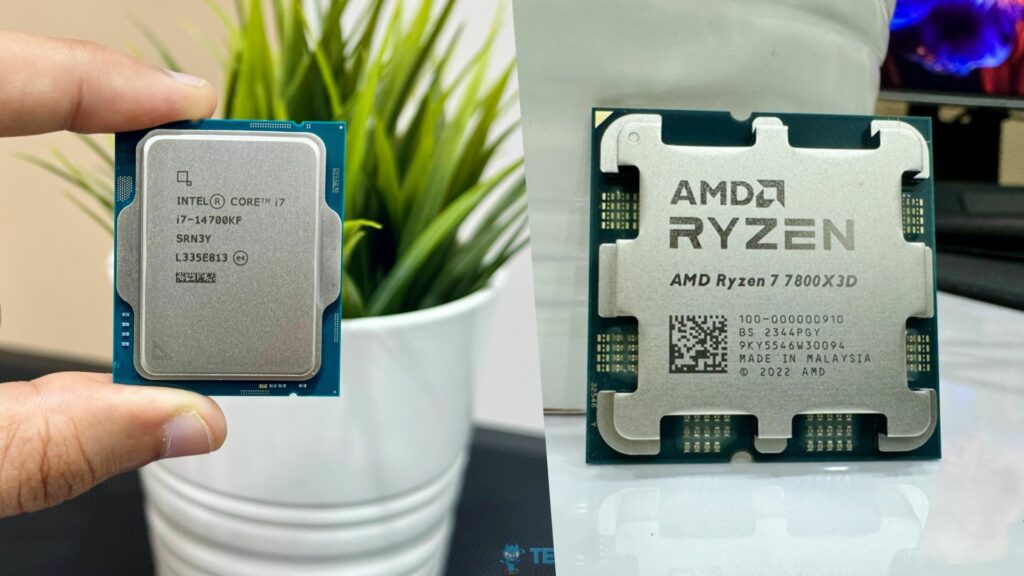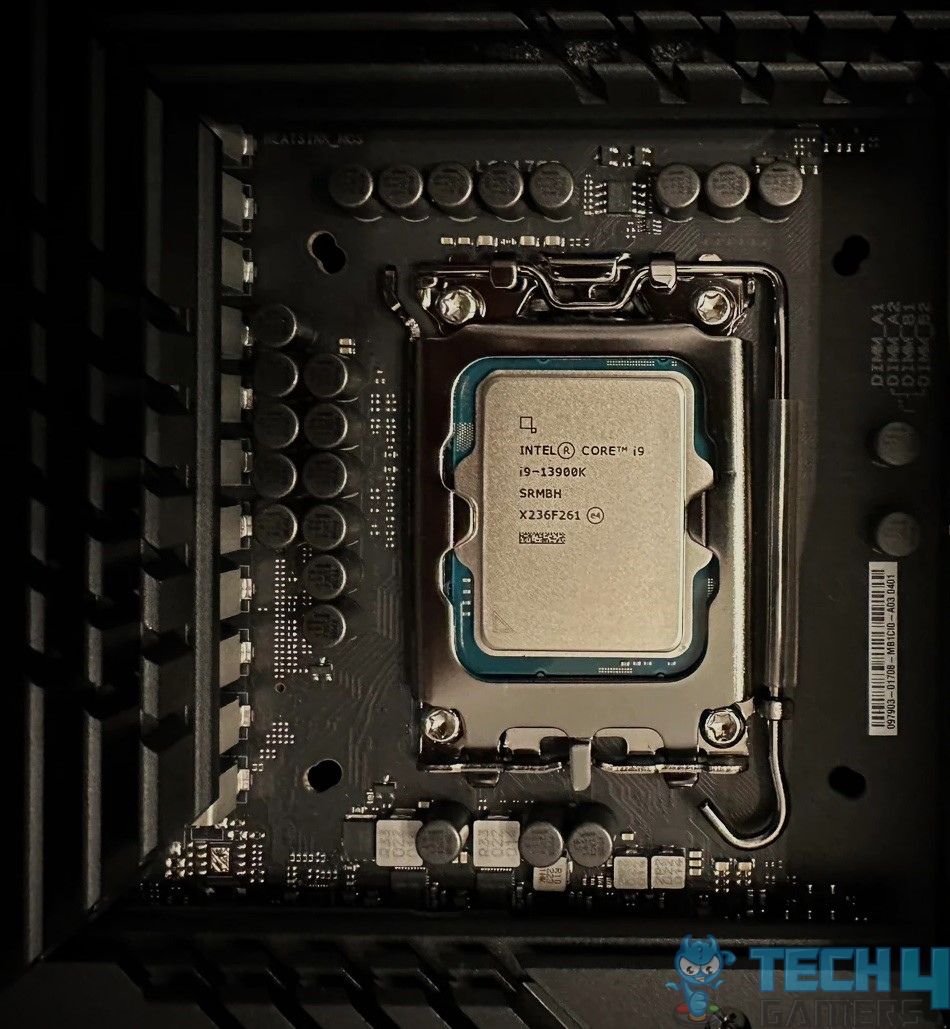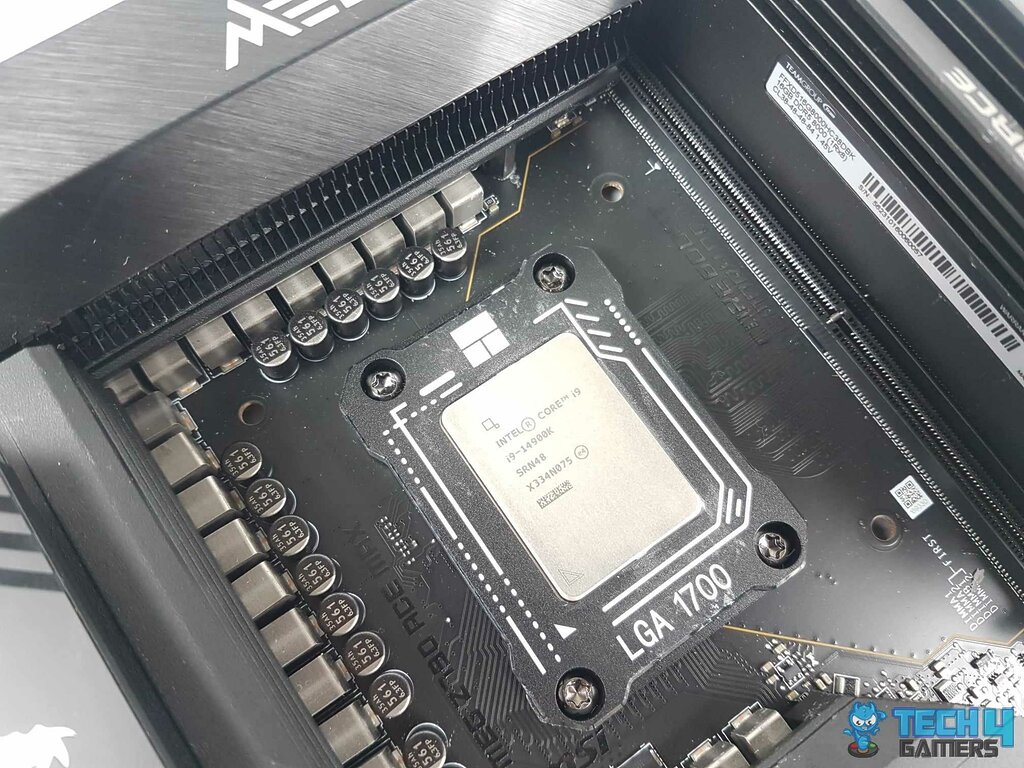- The vulnerability affects both mobile and desktop versions of Intel’s 13th Generation ‘Raptor Lake’ and 14th Generation ‘Raptor Lake Refresh CPUs with TDPs of 65W and above.
- The root cause is a bout of ‘elevated operating voltage’ which pumps excess power to the processors, resulting in permanent silicon damage.
- Intel has also promised a software-based patch/fix, but this will only prevent further damage and cannot undo previous impairment.
Update: 7th August 2024 – After severe backlash, Intel has now announced that it will be revising its warranty policies to honour the RMAs for affected OEM & Tray CPUs as well.
Tsk, tsk, tsk.
Welcome to Q3 of 2024.
Intel is already on the backfoot due to AMD’s consistent blockbuster releases of the Ryzen 7000 ‘Raphael’ Processors based on Zen 4, followed by the recent launch of the Ryzen 9000 ‘Granite Ridge’ CPUs based on Zen 5.

But what’s that I’m hearing? Another PR disaster for Intel? I wouldn’t be surprised at all. Let’s dive into the details of Intel’s latest headache.
Intel.exe Has Stopped Working
As if being dethroned for the best gaming processor by the Ryzen 7 7800X3D wasn’t enough, Intel’s 13th Generation and 14th Generation Series Processors are now experiencing routine systematic crashes and suffering from widespread stability issues.
Unbelievably, this crucial flaw was first revealed more than a year ago when enthusiasts and gamers alike were trying to overclock their flagship Intel CPUs or even game on relatively moderate SKUs like the Intel Core i7-13700K.
Notably, softwares running the Unreal Engine 5 were the first to witness these crashes on their best-in-class Intel silicon.
Those early sufferers tried RMA’ing the CPU, courtesy of Intel, but to no avail. The replacement processors, for the most part, also suffered from the same fate, if not in a slightly milder way. Understandably, users are outraged to be the victim of such a massive design flaw after paying top dollar for their Intel CPUs.
The next thing these users attempt to do is trying to take the matter into their own hands and resolve the issue themselves. So the question begs, what is causing these brand new, top-notch Intel CPUs to crash so severely?
Intel Crashes: Why?
After a thorough, in-depth investigational analysis, Intel came to the conclusion that the root cause was a faulty microcode embedded in the CPU itself.
Through manufacturing/design oversight, the erroneous microcode of these defective Intel CPUs causes the motherboard to pump excess voltage to the processors.
Interestingly, this culpability is only affecting the 13th and 14th Generation Intel CPUs which boast a TDP (Thermal Design Process) of 65W or higher, which include all variants of the Core i5, Core i7, and Core i9.

Trivially, this problem has also been found to be present in Intel’s mobile processors, the Core i9-13900HX and Core i9-14900HX for example, with the exact same parameters.
It’s essential to remember that the K-Series CPUs, i.e., the Intel processors that are unlocked for overclocking, carry the highest risk of being affected by this internal vulnerability.
Intel Crashes: How?
Obviously, these processors aren’t designed to handle such large quantities of voltage, so they overheat, permanently damaging the CPUs’ silicon. This ultimately ends in a preservative measure in the form of a severe power cutoff to safeguard the processors’ integrity, but it is usually too late for that.
Intel Crashes: Acknowledgement And Resolution

At first, Intel refused to publicly acknowledge the issue, and at most, settled for quietly RMA’ing the affected CPUs for replacement ones, but as I noted above, that didn’t work too well for Team Blue fans.
As the susceptibility to Intel’s processors increased, the silicon enterprise had to take public notice of the issue, and Intel ultimately prevailed. For starters, Intel has promised a software patch for the faulty microcode in mid-August.
Nonetheless, this patch update will only prevent the CPUs from inflicting further self-harm on healthy silicon; this patch fix will not be able to rectify the damage previously carried out. Therefore, if you have been the victim of such system crashes, you’ll be best advised to RMA your CPU to Intel for a replacement unit.
Speaking of which, to my personal relief, Intel has promised an extension of the existing three-year warranty by tacking on two more years for a five-year warranty in total.
What’s The Catch?
I know you’re smart enough to know that Intel won’t tack on a two-year warranty extension so easily.
Here’s the thing. As you might know, tray CPUs are very common in Asian markets, but even in American and European regions for those wanting to save a few bucks. Unfortunately, the terms and conditions of Intel’s RMA policy state that the faulty CPUs must have been sold as boxed processors.
So, for those of you suffering from system crashes on tray CPUs, your only option is to appeal to your seller, who, in turn, will have to appeal to their suppliers, i.e., the grey-market dealers.
I’ll be honest, those grey-market dealers will also be helpless as Intel won’t honour their warranty claims, so for those of you with tray CPUs, unless you find yourself in a stroke of luck, you’re in a bit of a mess.
The best option is for you to undervolt and underclock your processor yourself to prevent further silicon damage and system crashes, and this is also strongly recommended for anyone who’s been lucky enough to not get a taste of these PC crashes yet.
Thank you! Please share your positive feedback. 🔋
How could we improve this post? Please Help us. 😔
[Wiki Editor]
Ali Rashid Khan is an avid gamer, hardware enthusiast, photographer, and devoted litterateur with a period of experience spanning more than 14 years. Sporting a specialization with regards to the latest tech in flagship phones, gaming laptops, and top-of-the-line PCs, Ali is known for consistently presenting the most detailed objective perspective on all types of gaming products, ranging from the Best Motherboards, CPU Coolers, RAM kits, GPUs, and PSUs amongst numerous other peripherals. When he’s not busy writing, you’ll find Ali meddling with mechanical keyboards, indulging in vehicular racing, or professionally competing worldwide with fellow mind-sport athletes in Scrabble. Currently speaking, Ali’s about to complete his Bachelor’s in Business Administration from Bahria University Karachi Campus.
Get In Touch: alirashid@tech4gamers.com




